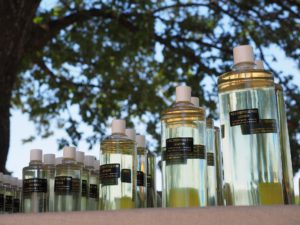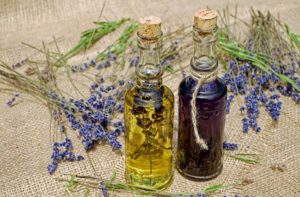Folk medicine would not exist if herbs didn’t exist: Herbs have been used for centuries to heal wounds and relieve pain as well as alleviate congestion, indigestion, and just about anything else you can think of when it comes to health issues.
Lavender oil has a royal seat in the court of herbal supplements. Folk medicine has relied on lavender and lavender oil for centuries and our love for this incredible oil seems to grow as we discover more about its abilities.

Back in the days when doctors were considered spiritual lighting rods that had a connection with the gods, lavender was harvested for its oil, and dried for its aroma. Pliny the Elder wrote about lavender when medicine was all about herbs and natural substances. Pliny believed that lavender could help women with menstrual cramps and stomach problems, and he even recommended it for jaundice, dropsy, and insect bites in the first century.
But folklore tales about lavender date back to stories about Adam and Eve. We can only dream about that Garden of Eden filled with rows of lavender, jasmine, and other natural companions. There’s no written history that can give us a detailed description of how our primary ancestors used lavender, but it’s safe to say they always had a fresh smelling and romantic place to procreate.
In the Renaissance years women were called ‘lavenders’ because they placed their clothes and linens over lavender shrubs to dry. Poor women who were lavenders were considered prostitutes for no apparent reason other than the sensual aroma that permeated their auras.
The first Queen Elizabeth drank lavender tea when she had a headache so lavender farms popped up all over the countryside. The wife of King Charles the 1st introduced lavender soaps so washing and bathing in lavender became a trend in the 17th century. France didn’t miss out on the lavender craze in the 16th and 17th centuries. They were using lavender in perfumes long before then, but lavender was used to cure infections during those diseased filled years.

Queen Victoria loved lavender so much she washed her furniture and the floors in lavender soap in the 19th century, but the Great Plague that devastated 17th century Europe was when lavender became a real folk hero. When lavender was tied around the wrists people believed they would avoid the plague, plus the grave robbers oiled themselves in a mixture of lavender, mint, rue, sage, and rosemary. Those ingredients were mixed with vinegar and that kept them from getting the plague from their dead victims.
Lavender oil was a miracle concoction during the 20th century. People used it to get rid of head lice as well as take the sting out of insect bites. Lavender oil was inhaled when a cold or bronchitis symptoms appeared, and when it was worn around the neck it cured headaches.
The folklore that surrounds lavender and lavender oil continues today. Some people believe that lavender oil can help reduce cancer growths and guess what? Some medical researchers agree with them.
Lavender Oil in Folk Medicine